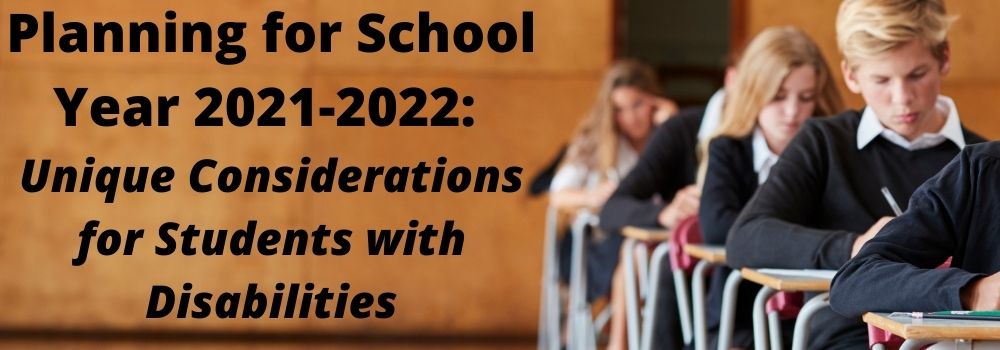Spring 2021 —
The MLO Minute: By Dennis McAndrews, Esq. and Michael Connolly, Esq. —
As families with school-age children take stock of their post-pandemic world, planning for the upcoming school year and assessing any existing rights to compensatory education has become increasingly time-sensitive over the past few weeks. Vaccination rates have risen sharply, positivity rates of infection are dropping significantly, and most school districts are planning for full-time in-person instruction in the upcoming school year. For families of children with disabilities, navigating the new paradigm regarding their upcoming educational programs and placements can be greatly challenging at this time–which is particularly crucial for their children’s educational and physical well-being. Moreover, both the United States and Pennsylvania Department of Education have explicitly recognized that many, if not most, children with disabilities are entitled to some level of compensatory education to address the almost-inevitable diminishment of educational opportunities and meaningful programming during the pandemic. Skilled advocacy is more essential than ever in ensuring that appropriate compensatory education is provided to address any inadequate programming both pre-pandemic and during the pandemic.
For some children, a critical issue for the upcoming school year involves a continuation of accommodations which may have been successful during the pandemic, such as more intensive one-on-one instruction as opposed to utilizing in-person group instruction or therapies which for some students have proven ineffective. Moreover, some students with disabilities were able to attend in-person classes with lower student populations and which gave many students with disabilities a greater sense of comfort in a smaller school population and which allowed for smaller classes and more intensive interventions. With a return to full-time in-person instruction, these opportunities may be lost, but should be the subject of discussion and advocacy on behalf of children with special needs.
For some children, a return to school where many students and some adults are not vaccinated may create stressors and risks for the children and families, especially for students who are immunocompromised or are otherwise at greater risk than the general population. Once again, the individual needs of the students must be assessed, considered, and addressed on an individualized basis, and no cookie-cutter approach should be seen as acceptable in meeting the unique needs of individual students with disabilities.
Our firm provides free consultations in all special education matters, and most cases are handled without charge to families. At this critical time of planning and assessing entitlement to compensatory education, families should not hesitate to reach out to us for a free consultation.




